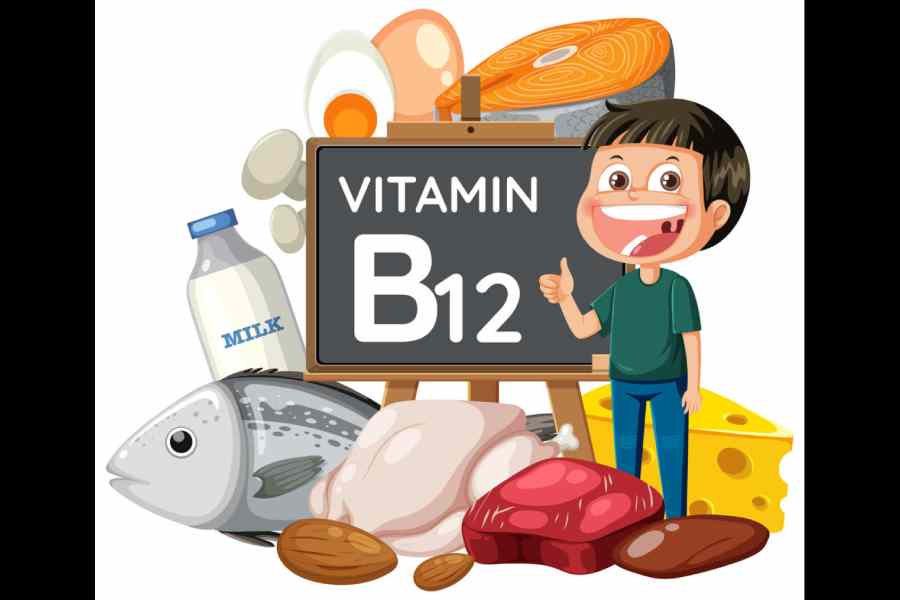Most water-soluble B vitamins are abundantly found in fresh fruits and vegetables. They are delicate, heat-sensitive and often lost during cooking, especially in overcooked vegetables. However, since many B vitamins leach into water, this loss can be offset to some extent by consuming the water from cooked vegetables.
One notable exception to this general rule is Vitamin B12. Though it is water-soluble, it is primarily present in animal-based foods such as meat, eggs, dairy products and mushrooms. As a result, pure vegetarians often struggle to obtain adequate levels of this essential nutrient. Unlike other B-complex vitamins, Vitamin B12 cannot be absorbed from digested food. It requires binding to an “intrinsic factor”. This is a glycoprotein secreted by the stomach. The bound complex molecule is then absorbed in the small intestine.
Absorption challenges
As people age, particularly after 40, the number of parietal cells in the stomach decreases. The stomach’s production of intrinsic factor, therefore, declines. In some people, antibodies develop against the intrinsic factor, destroying it. As a consequence, there is reduced and impaired absorption of Vitamin B12. Additionally, individuals who have undergone stomach or intestinal surgery, with removal of some parts, or suffer from malabsorption disorders, bacterial overgrowth in the intestine or intestinal diseases may also experience reduced uptake.
Medications that interfere
One of the most commonly prescribed anti-diabetic drugs is metformin. It is also given to tackle obesity, reduce appetite and to women suffering from polycystic ovaries. It interferes with Vitamin B12 absorption. Long-term metformin users (four months or more) are at risk of gradually developing a deficiency. They need to monitor their Vitamin B12 levels annually.
People suffering from chronic acid reflux (GERD) often take medications like omeprazole. Some feel they have “acidity” and self-medicate with similar drugs. Prolonged unsupervised use (12 months or more) can impair B12 absorption. This is because some stomach acid is essential for breaking down food, digesting it and releasing B12.
Role of alcohol
Excessive alcohol consumption damages the stomach lining, reducing intrinsic factor production and leading to Vitamin B12 deficiency. Furthermore, since excess B12 is stored in the liver and released as needed, liver damage caused by alcohol exacerbates deficiency risks. Alcoholics are also particularly vulnerable due to poor dietary habits, which further contribute to malnutrition.
Diagnosis
Vitamin B12 levels are usually measured through blood tests. Normal levels range from 200 to 900 pg/ml.
It is vital for red blood cell production and the nervous system’s proper functioning. Deficiency can lead to megaloblastic anaemia, where red blood cells become abnormally large. Deficiency symptoms include paleness, heart palpitations, fatigue, dizziness and breathlessness. The tongue may become smooth, red and inflamed, and nails may develop a bluish tint. The digestive system may also be affected. Neurological symptoms range from depression, mood swings, irritability, memory loss, muscle weakness, tingling sensations, numbness and loss of sensation in hands and feet.
Treatment
Deficiency is treated with injections, initially administered several times per week. It is gradually reduced to weekly and eventually monthly doses. High-dose oral supplements may also be an alternative, particularly for long-term maintenance.
Regular monitoring and early intervention to treat deficiency can prevent severe complications and ensure optimal health and well-being.
The writer has a family practice at Vellore and is the author of Staying Healthy in Modern India. If you have any questions on health issues please write to yourhealthgm@yahoo.co.in










